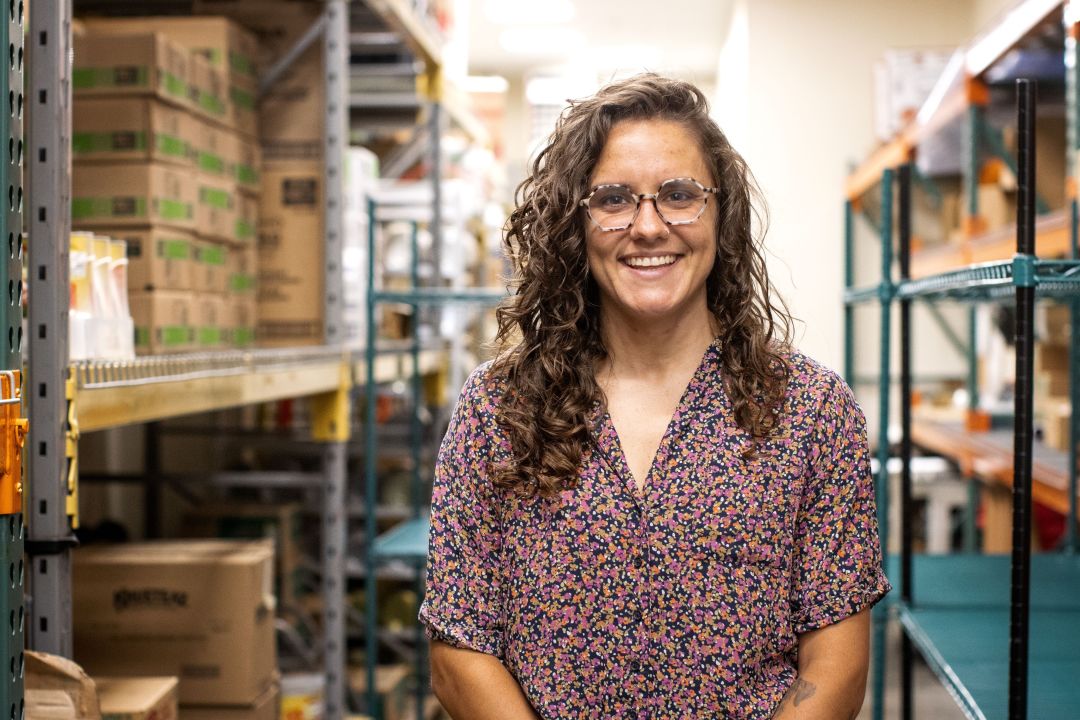It’s Time to Start Thinking About Food as Preventative Health Care

If your diet lacks the proper nutrition, your body can start to break down, putting stress on your immune system, reducing muscle mass and strength, while wounds heal more slowly and fatigue, depression, and anxiety become the norm.
Older adults, especially those who are socially isolated, are at the highest risk of these harmful outcomes. Mobility decline, health issues, and access to transportation become substantial barriers to sustenance, and an empty belly can exacerbate existing conditions. Wholesome food, therefore, is medicine, and although it doesn’t require a prescription, getting it to those in need around Portland does require a dedicated team of volunteers.
Meals on Wheels People is able to deliver a full year’s worth of medically tailored meals (MTMs) for less than the cost of one day in the hospital. In many ways, that fact is hard to digest, but the nonprofit represents a proof of concept — people who receive MTMs experience a 16% reduction in net health care expenses. Extrapolated nationally, this kind of aid could save $13.6 billion in health care spending and help avoid 1.6 million possible hospitalizations.

Image: Nicole Ceron
Erica Silveira, MS, RD, LD, Meals on Wheels People’s in-house registered dietitian, explains how the meals prepared in the organization’s Multnomah Village central kitchen are made to meet particular medical needs, not just fill a plate.
“All of our meals are heart-healthy by default. That means there are limits on sodium and saturated fat, which is really important for managing things like heart conditions and high blood pressure,” she said. “We also offer two types of renal meals: one for people with chronic kidney disease and one for people with end-stage renal disease on dialysis. The kitchen has completely redone our recipes to meet these standards — and now they’re working to meet additional guidelines for diabetes-friendly meals, which have specific ranges for carbohydrates and calories.”
Personalized plans can also be designed for people living with conditions like COPD or even cancer. From a human perspective, this preventative care can be life-saving — but in a matter-of-fact, financial sense, it’s also a cost-effective return on investment.
For proof, look no further than Meals on Wheels People participant Ardith, who underwent multiple surgeries, including a gallbladder removal, hernia repair, and treatment for a large bladder cyst, at the age of 85. Upon returning home, she was too tired to care for herself, and her adult children, who were struggling with their own health issues, could not consistently be relied upon.
Ardith’s daughter suggested signing up for Meals on Wheels People, and since then, the nutritious meals she receives have been a critical boost to Ardith’s well-being.
Doctor’s orders meant she had to be mindful of eating things that would negatively affect her pancreas, especially avoiding greasy or junk foods. “It made a huge difference. I looked forward to seeing the drivers. And I ate nourishing food. If I’d been by myself, I would have just eaten whatever was close by.” Ardith added, “It really did boost my emotions, my mental healing. I’m able to take my walker out and walk a little more. That’s good for everything in my recovery.”
Debbie, another Meals on Wheels People participant, struggled with weight her whole life. “I just couldn’t stay away from junk food. I’m diabetic. I should have been taking better care of myself,” she said.
Her wake-up call was a big one — a heart attack, which thankfully, she survived. Now, when she opens the door to the smiling faces of Meals on Wheels People volunteers, she also opens the door to leading a healthier lifestyle. “I’ve lost at least 45 pounds. I can’t tell you the last time I looked down and could see my feet over my belly,” Debbie said. “I do not think even with being scared as badly as I was that I ever would have lost that weight. It’s amazing to me. I put it down 100% to Meals on Wheels People.”
September is Hunger Action Month, and with it comes a reminder about how your donations can directly make a difference in the lives of people like Ardith and Debbie. If you’re interested in volunteering your time instead, there are opportunities to support in the dining center, deliver meals, assist with outreach, and more.
